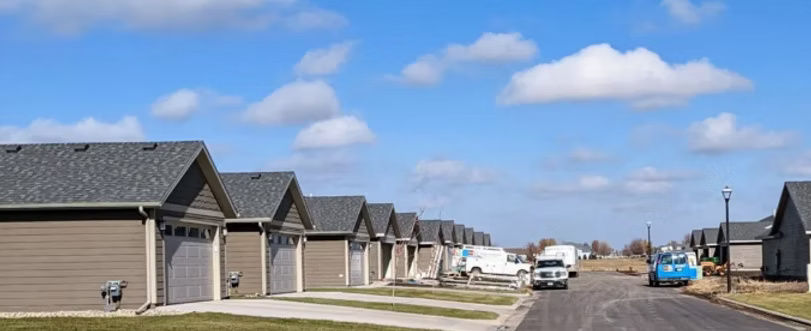Bay Area Homes You Should Never Buy: Don’t Make These Mistakes!
- Marketing Alpha

- May 2, 2025
- 4 min read
Updated: Aug 28, 2025

🙆Axis Realty summarizes the pitfalls you must know when buying a house in the Bay Area!
🏠Whether you are buying a property for your own use or for investment, you must be aware of the pitfalls that may occur in the market at any time. You cannot regret it because you overlooked a detail! Many shortcomings are hard-to-change flaws😲
This article summarizes the types of houses that need to be closed in the Bay Area from the two aspects of house characteristics and geographical location. Let’s take a look~看吧~
First of all, let’s analyze the characteristics of the house. Houses with the following five characteristics require special care.
1. Unclear property rights

New homes are relatively rare in the U.S. real estate market, and many transactions are basically for second-hand homes, so the ownership of the seller's home is a major issue that buyers need to consider.
When trading a house, the seller will generally purchase a title insurance policy and promise that the title to the house is not mortgaged or has any other problems.
When faced with a house with unclear title, you need to understand in detail what rights you have, what liens you have after purchasing, whether title insurance can protect the new owner, etc. The many problems arising from this may still be missed in the actual purchase of the house, and the risk is very high. So it is best not to consider these houses.
2. There is a lawsuit involving the house

Some houses may have been or are currently involved in litigation. When looking at a house, the average buyer rarely thinks about the issue of house litigation. If the house is currently involved in litigation, it will be very difficult for the new owner afterwards.
Buying a house is equivalent to asking yourself for a big trouble, so when buying a house, you should promptly consult the agent whether there is any litigation about the house. Pay more attention when checking the relevant reports about the house. You can also check the public housing court data through some online platforms to understand it . If there is any litigation, try to avoid such houses.屋。
3. There are a lot of unpaid fees

Many buyers will ignore the unpaid fees for the house when purchasing a house. Although some fees are already shown in the report issued by the seller, buyers still need to pay more attention to this item and let the seller pay the required fees before proceeding with the transaction.
Buyers need to know in detail what is due before the purchase of a house, which ones will last until later and which ones are necessary. Before buying a house, ask the agent about the additional fees related to the house. If you encounter a house with a lot of unpaid fees, it is best to avoid it.
4. Community safety is low

When buying a house in the United States, you should pay close attention to the quality of the area where you are buying the house. Communities in good areas are relatively safe, with good living environments and low crime rates. You can live in a good area with peace of mind and have more life experiences.
On the contrary, living in bad areas with poor security will be very bad, especially in areas where daily crimes occur frequently and the community is not well protected. And due to the gun control issues in the United States, the low-security living environment is even more worrying, so everyone needs to be very careful about these areas.
Before buying a house, do more research on the local crime rate and living environment, check relevant resident reviews, and consult the agent for accurate conditions.
5. Remote areas with inconvenient transportation

Many buyers, with limited budgets, see that houses in remote areas with inconvenient transportation are cheap and want to buy them.
Looking at the prices now, you may think that you can tolerate a longer commute to live, but in real life, the inconvenience of travel has a huge impact on work and life, and greatly reduces the happiness index of life.
Buying a house in some remote areas will also lead to inconvenience in daily life. In stormy weather, the house will be damaged, the road will be damaged, etc., which will make you isolated and helpless. So it is best not to buy such a house.
Next, analyze from the geographical location!
1. Houses close to schools/commercial areas/fire stations/police stations/hospitals

There is no need to elaborate on these. Although they seem to be convenient for life, they actually bring noise from time to time!
2. Houses close to highways/roads/airports/train tracks

National Transportation Noise Map(U.S. Department of Transportation)
Never buy a house near the airport/train/highway/main road, as noise and air pollution are big problems!
3. Houses located in areas with high risk of natural disasters

How to check high risk of natural disasters:
Go to myhazards.caloes.ca.gov and search for the address
View Natural Hazard Disclosure in Disclosure
If your house is located in an earthquake zone/flood zone/wildfire zone, you can avoid losses by purchasing home insurance.
4. Houses next to shelters, especially SFH

The negative impact of homeless shelters is huge. People living in shelters are not only low-income or have no income, but some even have mental problems or are drug addicts. This poses two major risks to residents living in nearby houses: noise and safety.
This also explains why housing prices near shelters are lower. A New York Times analysis found that homes within 500 feet of an adult shelter are estimated to sell for 7% less than homes within 500 to 1,000 feet.
In summary, Axis Realty recommends that you stay away from shelters, whether you are buying a home for personal use or investing in a property. Also, be aware that the county may be planning to build new shelters!!
There are still some other troublesome issues about



Comments